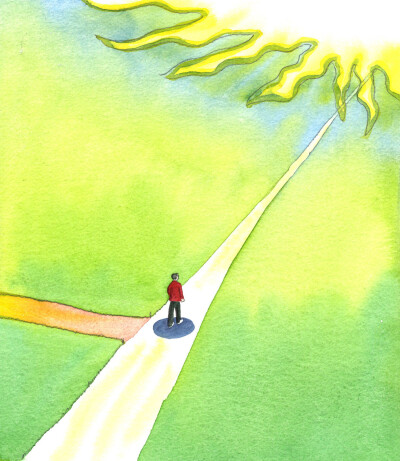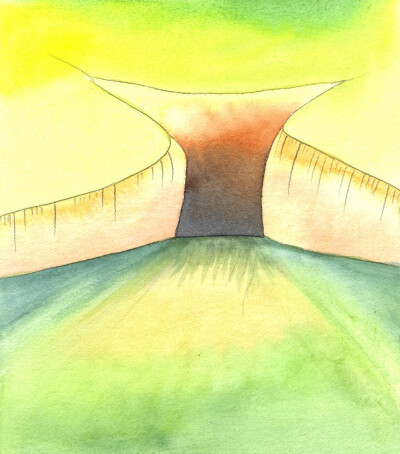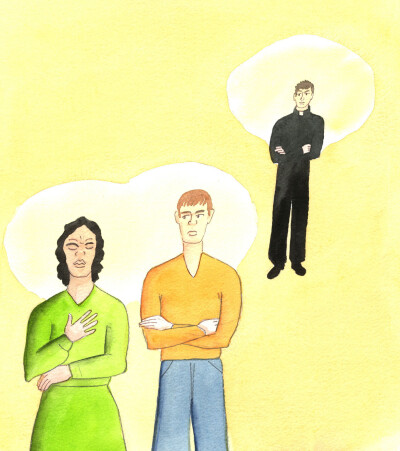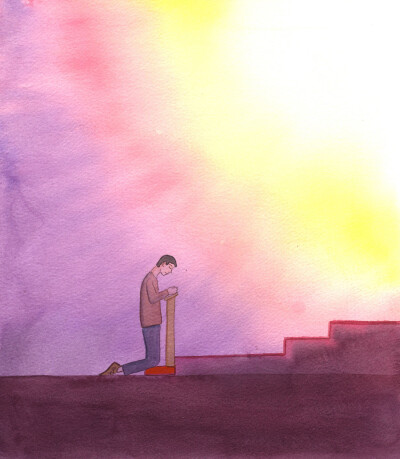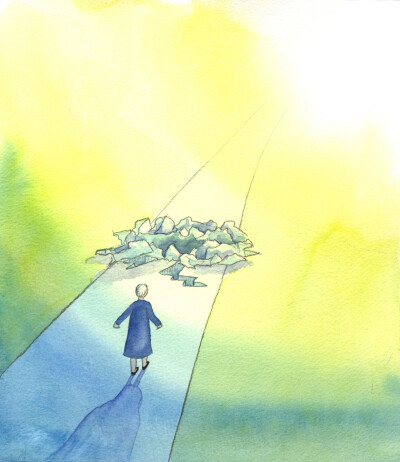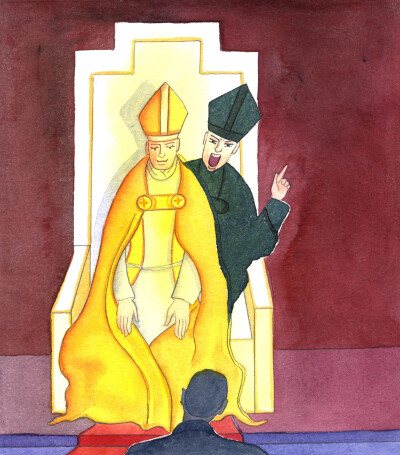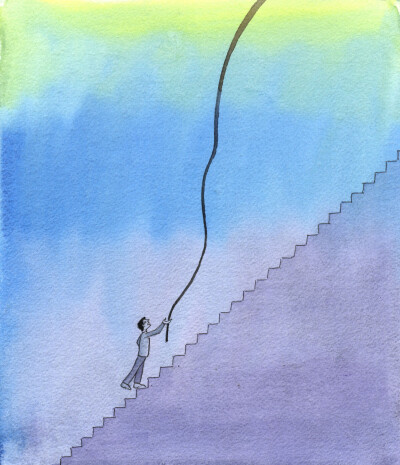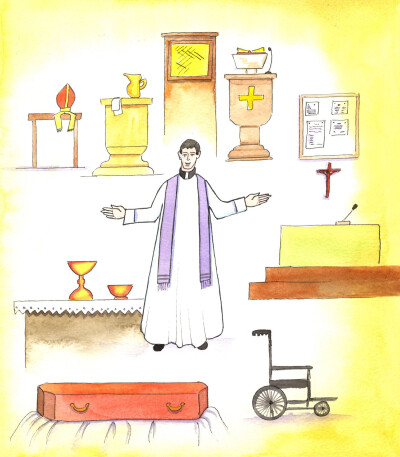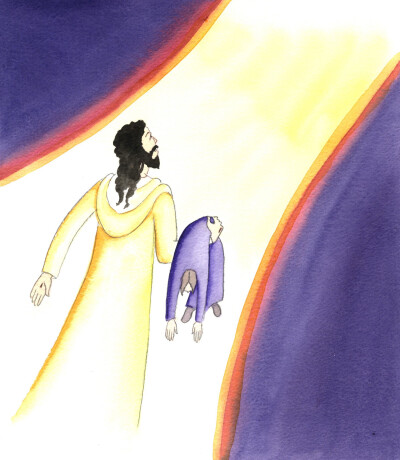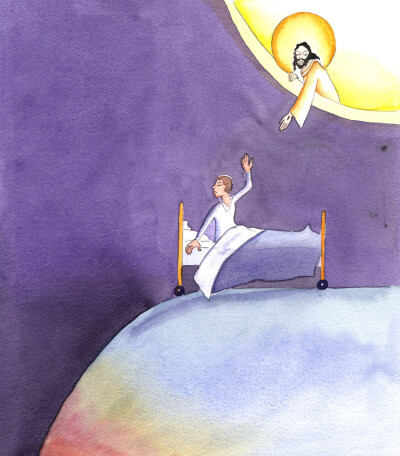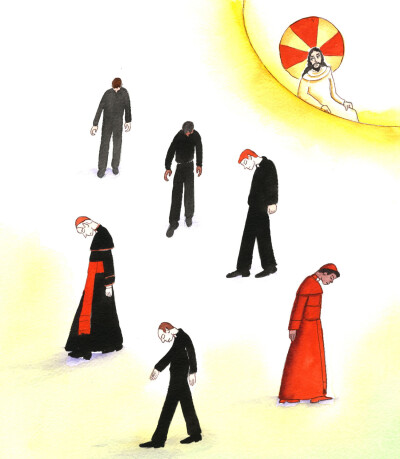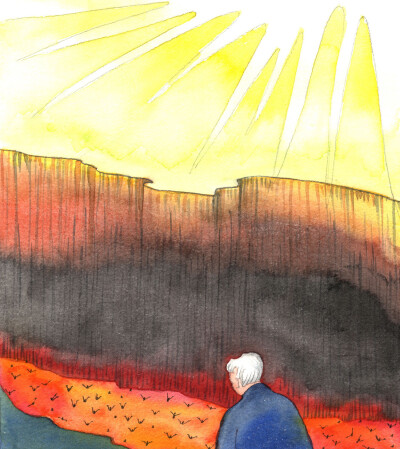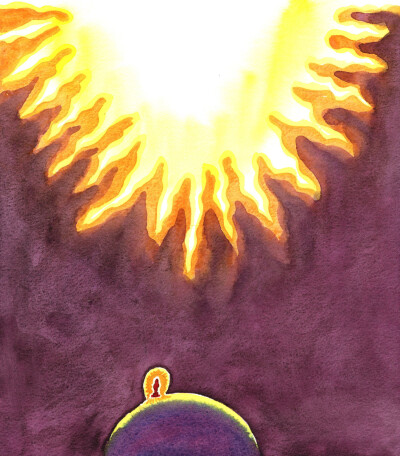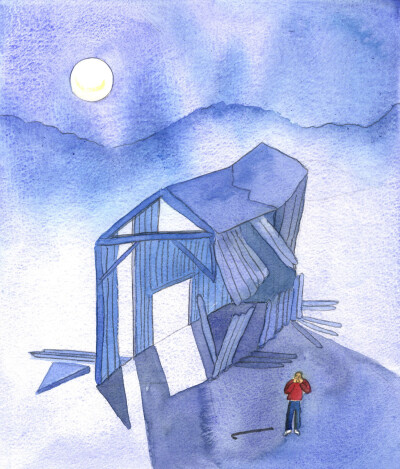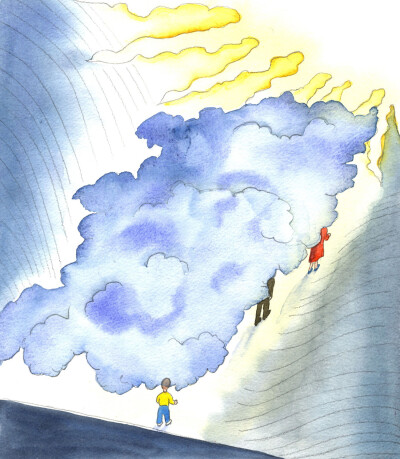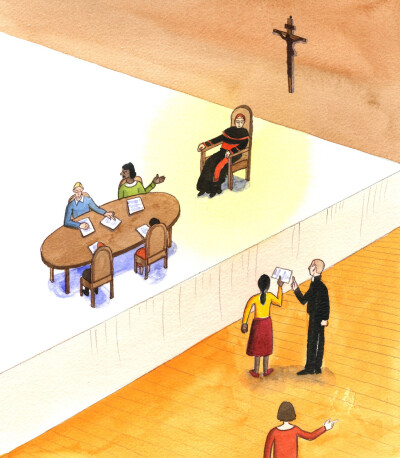Search Page
Showing 561 - 580 of 635
Really to love God is to prefer His Will to our ambitions. The Lord is glad to see a non-Catholic Christian come into full Communion with the Catholic Church. Yet from that 'spot' on the road there is a lengthy journey to be made, towards Heaven, and much to learn. Growth in faith, hope and love should be achieved, by God's grace, through prayer, spiritual reading, self-mastery, and acts of kindness, in humility, patience and trust.
A Catholic who can not be bothered to practice the faith has a soul so dead, perhaps, as to be almost lifeless - like the frozen landscape pictured here. Where can he go when he dies, except into the Abyss, if he has refused to acknowledge, honour or serve God and enjoy His friendship - if he has refused the help of the Holy Spirit, Who carries towards Heaven, after death, all who die 'in Christ': as friends of God?
All of those Catholics who cannot be bothered to go to Mass once a week are like people marching across an icy landscape towards the Abyss. The snow represents the deadness of the souls of all who, by refusing to attend Mass, are as if saying to Christ: 'I don't need your prayers, at the Holy Sacrifice' - 'I'm not bothered about my salvation'; 'I'm not going to confess my sins, to be reconciled with You'.
At the end of human life, we shall ultimately make our way towards Heaven - by the grace of Christ - or to Hell, as a consequence of our own choices and actions. Hell can be pictured as a hole in the ground, from which no-one can return, whether to earthly life or to Heaven. It is a life of utter misery and regret, shared with others who have resolutely refused, until death, to accept Christ's invitation to turn to Him in repentance, to receive the gift of Divine Life.
Priests, especially, must not regret their state of life. We cannot avoid all suffering, in this life, but God can help us to bear it. No-one should envy people who have another vocation. Which is the greater sacrifice: doing without marriage, to become a priest, or suffering within a difficult marriage, to be faithful to the Lord's teaching? God the Father will reward all who make sacrifices for His sake, since He is just.
Christ knows that a person whose love for Him is sincere, who recognises the wonderful graces given to him, and realises his privileged state as a sharer in Divine life, is truly grateful; and such gratitude expresses itself in praise and thanks, offered to God with outward as well as inward expressions of reverence. A person who acts in this way opens his heart to receive an even greater number of graces.
We must not give up when trials come. We sometimes meet what seems like an earthquake on our 'road to glory', as we follow Christ's way to Heaven. Whether it is caused by opposition, or assaults, or natural disasters, or weakness springing from our own nature, we can still move forward, even amidst our difficulties. It was said of Christ, 'for the sake of the glory that lay ahead, he bore the shame of the Cross'. So it can be with us.
The Clergy sometimes, individually, make mistakes. We are right to respect the man and his office, and to accede to his wishes in the service of God, the Church and our neighbour. We should act with truth and charity towards him; but we are not obliged to believe the personal opinions he expresses if he is in error or offends against charity. A bishop in error confuses us by confusing two contradictory messages: his own, and also the one that he should embody as our Shepherd who guides, teaches and governs in the place of Christ.
God wants us all to help one another, yet there are souls in the depths of Purgatory who have never been prayed for by their Protestant relations who do not believe either in Purgatory or in prayer for the deceased. But when we pray for the dead it's as if we let down a rope, to help people to rise up towards Heaven. We need to share reminders about the importance of such prayer.
The priest is the man at the heart of the process of conversion. He brings good news about God's love, and the forgiveness given to repentant sinners. He brings Jesus to us: in His Word, in the Real Presence of Christ at Mass and in the tabernacle. He organises Catechesis; and he preaches, offers the Holy Sacrifice, prepares us for death, guides and helps the bereaved - and the faithful priest will be marvelously rewarded, even in this life. His greatest friend is Jesus Christ.
It is a great grace for a lapsed Catholic to receive the Sacraments of the Church before death. This can change that person's eternal destiny, from being hopeless - if he or she was in a state of mortal sin - to being glorious. It's as if Christ carries that soul upwards, even if the soul must spend a while in Purgatory before reaching Heaven.
There were ancient temples where pagans offered sacrifices, and kept their victims in a dark underground chamber. There are many people today who freely 'sacrifice' their own souls by their un holy practices; and by these sins they freely move away from the light of God towards the dark, eternal state of being-without-God, rightly called Hell.
Each of us should ask, if we think about death, "Will my soul rise up to Heaven, helped by the outstretched arm of Christ?" If we do not turn to Christ, and allow Him to forgive our sins, and to bring us to Heaven by His Divine power, we cannot save ourselves. We shall have no-where to go except downwards, into the eternal loss-of-God that is called Hell.
Amongst faithful priests there are others who act with timidity or cowardice. People complain when priests are guilty of sexual immorality; yet Christ sees something scarcely less sinful in His sight as He watches priests who have their heads down, as they avoid giving clear teaching on sexual morality; in this way they fail to give the guidance they have been called to give, and fail to lead sinners away from their sins.
God is so good that He sent His own Son to suffer, to save us. Christ has warned us that we follow a 'hard road' to Heaven, and that few find it. People who have fallen into Hell have died unrepentant, having ignored God's laws, taken no notice of the Gospel, and having refused the help of wise friends who warned them of the danger of continuing in grave sin. And now they cry out in horror at their predicament, in the sea of fire in the depths of the Abyss.
Earthly idols have sometimes been so glorious as to make men tremble with awe - yet the glory of Almighty God is a million times greater. How important it is, that we sinful creatures show reverence and love towards God. Christ, the Son of God, looks with kindness upon all who approach Him or His Father in sincere prayer; yet it is reverent souls who are invited to enjoy intimacy with God.
It is important for us to be kind to the elderly as well as the sick. It is inevitable that when elderly people have serious mental problems, solely due to old age, their spiritual state can seem to be changed. They might be moody or impulsive, when they were not so in the past. A person can seem to resemble an old barn which still stands, but is evidently deteriorating. We must beware of falling beams - sudden rages - though persevering in kindness.
Wise people look at human life from the perspective of Eternity. We are right to try to be free of our ailments and handicaps - which seem like a great 'cloud' above us - as we move through life, towards Eternity. But even people who are, for example, deaf, or have speech problems, should be confident about life. What is important is communion with God, Who can 'hear' a single thought. Our ailments need not stop us from being close to Him, until our lives end in His presence, where He welcomes His friends into His embrace, in perfect communion, for all Eternity, all 'clouds' dispersed.
Satan is tireless in his efforts to corrupt and endanger God's friends. There is a holy Way on which we can walk: a way of light and peace, on which we can walk in the knowledge and love of God, confident that by His grace and mercy we are making our way towards Heaven. Yet we must be vigilant until the moment of death, determined not to allow Satan's tricks, or our own weaknesses and sinful instincts, to draw us off that road.
It is not enough for a bishop to rely on committees, in managing the education, catechesis and liturgical celebrations in his diocese, if this results in unorthodox statements or programmes being put forward, or irreverent or foolish liturgical practices. He has been given authority by Christ; and should step in, to ensure that everything is in accord with the 'Mind of Christ'
Showing 561 - 580 of 635

